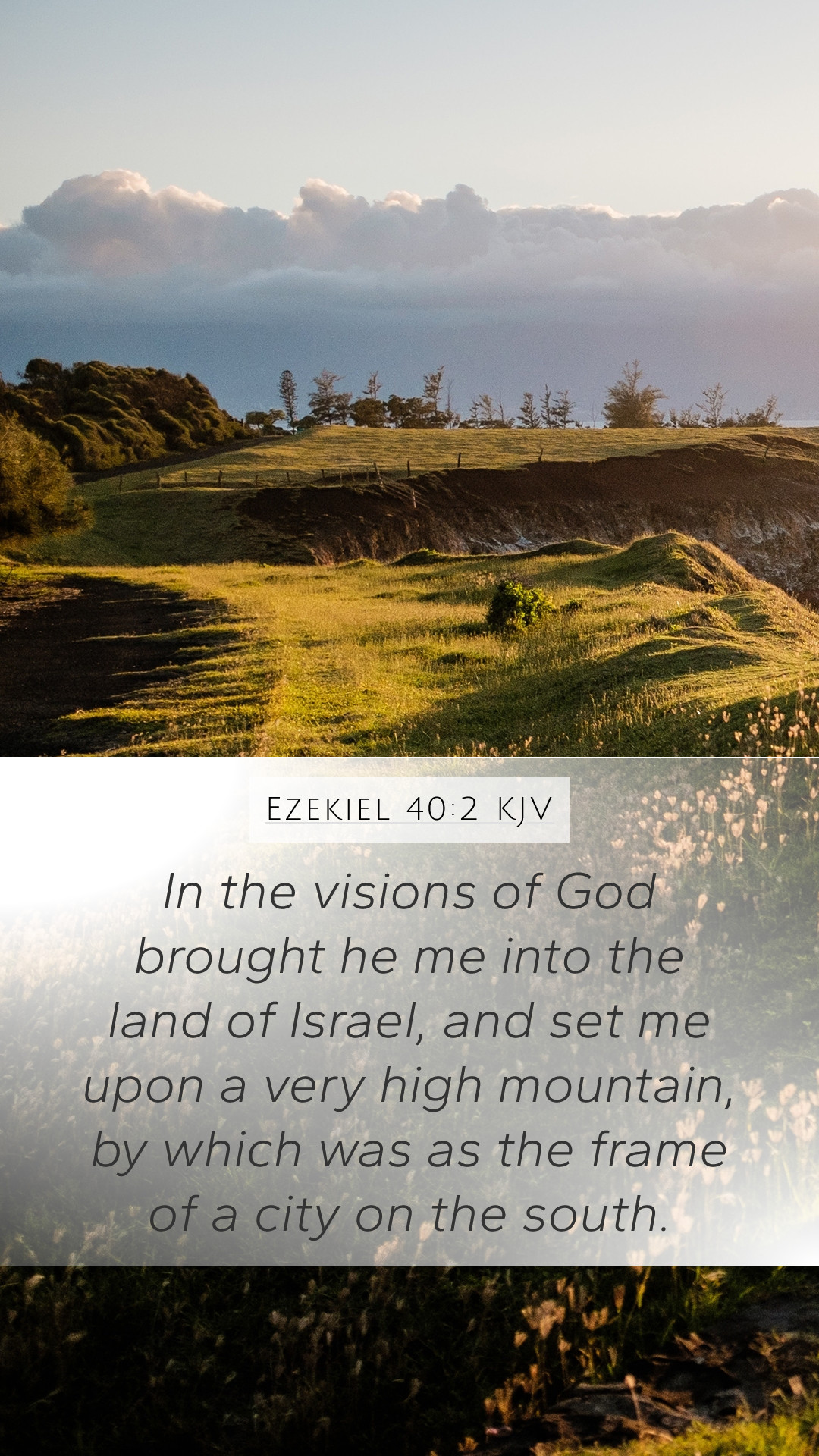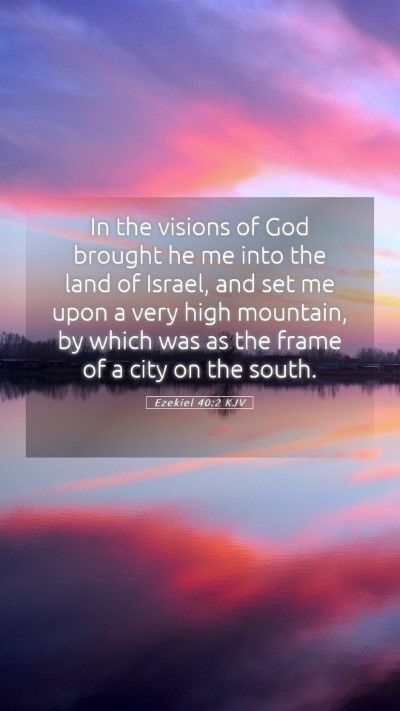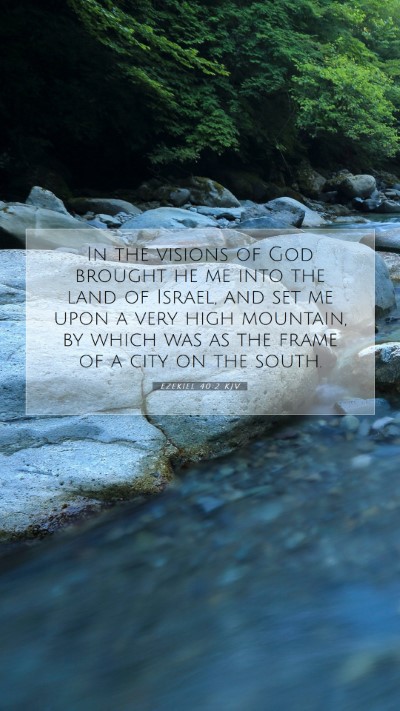Ezekiel 40:2 - Verse Meaning and Interpretations
The verse Ezekiel 40:2 reads:
"In the visions of God brought he me into the land of Israel, and set me upon a very high mountain, by which was as the frame of a city on the south."
This passage is pivotal in the book of Ezekiel as it marks the beginning of a comprehensive vision concerning the future restoration of Israel and the temple. It is essential to understand this verse within its broader prophetic context.
Overview and Context
Ezekiel was a prophet during the Babylonian exile, where he received various revelations from God. The visions beginning in Ezekiel 40 are particularly significant as they outline the detailed plans for a future temple, a symbol of God's presence among His people.
Bible Verse Meanings
This verse highlights several critical themes:
- Divine Revelation: The phrase "in the visions of God" indicates that the insights Ezekiel receives are divinely inspired and not merely imaginations or dreams.
- High Mountain Symbolism: Being placed on a "very high mountain" signifies a perspective of authority and vision, suggesting the elevation of God's judgment and the grandeur of His plans for restoration.
- Preparation for Restoration: The mention of "the frame of a city" signals a new order and preparation for the re-establishment of Jerusalem, which had suffered devastation.
Commentary Insights
Matthew Henry's Commentary
Henry emphasizes that Ezekiel’s vision is a sign of hope for Israel, specifying that the prophet's encounters were meant to comfort the exiles by showing them a promised future. The high mountain metaphorically emphasizes God's sovereignty over earthly kingdoms and His plan for Israel’s restoration.
Albert Barnes' Commentary
Barnes notes that the detailed description following this verse, which pertains to the measurements of the temple, showcases God’s meticulous plan for worship and obedience. He highlights that the visions serve both as a warning and a promise for the people of Israel. Each element in the vision points towards a holistic restoration of spiritual practices.
Adam Clarke's Commentary
Clarke points out the geographical significance of the high mountain, suggesting that it represents Jerusalem’s exalted status as the center of divine worship. He sees the "frame of a city" as a prophetic indication that God's people will dwell in security and peace once again.
Understanding Scripture: Application and Implications
To fully grasp the applications of Ezekiel 40:2, we must consider how the historical context influences its meaning:
- Understanding of Prophecy: This verse teaches us about the importance of prophecies in providing hope and direction during times of despair.
- God's Promises: The high mountain symbolizes God's everlasting promises and that no matter how dire the situation appears, His plans prevail.
- Importance of Worship: The restoration of the temple serves as a poignant reminder of the centrality of worship in the life of a believer.
Additional Cross References
- Ezekiel 37:26-28: God's covenant of peace and restoration with Israel.
- Revelation 21:2: The vision of a new Jerusalem, which is symbolically linked to the concept of a divine city.
- Isaiah 2:2: The mountain of the Lord's house is exalted above all hills, symbolizing peace and divine authority.
In summary, Ezekiel 40:2 provides profound insights into the nature of divine revelation, the promise of restoration, and the importance of worship. Understanding this verse encompasses an exploration of prophetic visions aimed at reaffirming faith, hope, and the eternal principles of God’s kingdom. For those engaged in Bible study groups or seeking Bible study resources, this passage offers a gateway for reflection on God's redemptive strategies.


